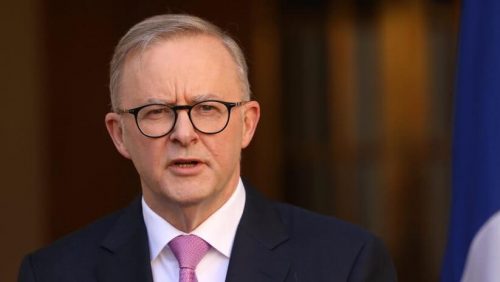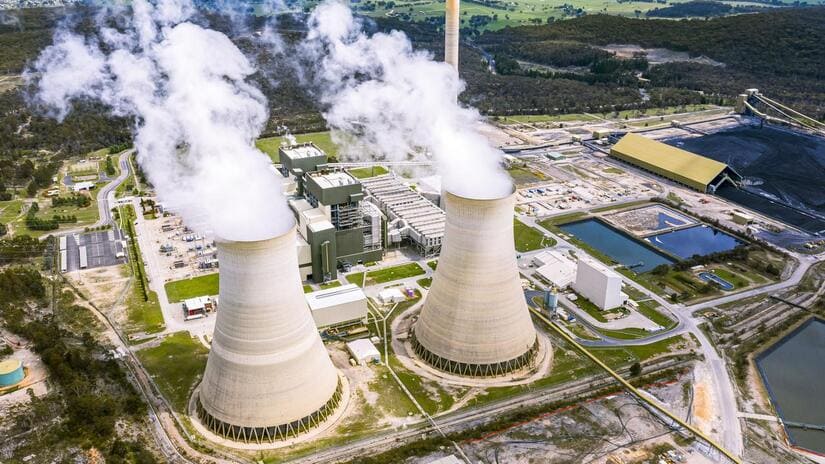Investors in Australia are seeking to wean off fossil fuels, in line with the country’s policy to cut carbon emissions by 43% by 2030.
As is the case in various countries of the world, investors are facing increasing pressure to stop subsidizing new production of oil, gas and coal projects, in order to control global warming.
In this regard, a new report – seen by the specialist energy platform – found that carbon neutral investments in Australia have made “encouraging progress”, but that more needs to be done if the country is to meet its decarbonization goals.
The State of Carbon Neutral Investments Report, produced by the Climate Change Investor Group, surveys institutional investors across Australia, including pension funds, sovereign wealth funds and asset managers.
Exclude fossil fuels
The report found that 70% of respondents have now set carbon neutral goals for 2050, of whom 57% have set goals across their entire portfolio (up from 41% in 2021), and another 23% are considering setting goals for 2050.
A relatively smaller percentage, 35%, have set decarbonization goals for 2030, and 21% have set targets for capital deployment in renewable solutions, such as renewable energy and clean transportation.
Despite the improvement in numbers from previous years, they are not considered sufficient to achieve the goals of the Paris Agreement, as confirmed by the report.
Most investors (77%) had some form of climate policy, of which 76% had some form of excluding fossil fuels in their portfolios.
Among those who excluded fossil fuels, 88% excluded thermal coal, 47% conventional oil and gas, and 35% mineral coal, according to information monitored by the specialized energy platform.
About a third of investors have already published climate action plans, with another 38% seriously considering implementing such a plan.
The following chart – prepared by the specialized energy platform – shows the annual support allocated to fossil fuel projects globally:
Physical climate risk assessment
The report assessed participants based on their approach to dealing with physical climate risk, and found that 22% of those surveyed had assessed physical climate risk across their entire portfolio, but only 9% had implemented a response to their exposure to physical risk.
The Climate Change Investor Group believes these numbers are set to change, given the severity of climate impacts expected in the future based on current trajectories.
The report also assessed the expectations of asset owners regarding the deployment of capital towards climate solutions, and found that 82% of them rated Australia as the market in which they expect to invest in climate solutions, while 67% chose North America in this area, and only 33% chose Asia.
Crucially, investors note that improved policy, including more investment opportunities, and a national target of 1.5°C emissions reduction, should encourage them to invest more in Australia’s climate solutions.
Promising results, but…
Climate Change Investor Group CEO Rebecca Mykola Wright described the report as “promising”, but investments still fall short of what is needed to limit global warming to a safe level.
“Investors make more progress each year, but we know that acceleration is critical to achieving climate goals and serving their beneficiaries,” she said.
However, Mykola Wright emphasized that the landscape is changing, with increasing opportunities for investors to push for carbon neutral solutions, according to Renew Economy.
“The good news is that there are now excellent tools and collaborative initiatives that investors can use to move faster than ever before,” she said.
“Helping investors set and reach 2030 targets is central to the Investor Group’s work on climate change, as is building resilience to the physical risks of climate change.”
The role of gas in energy transformation

In a related context, Australian Prime Minister Anthony Albanese said that new gas projects will play a role in the energy transition, as his administration seeks to pass a reform of the emissions reduction law amid growing pressure to ban new fossil fuel projects.
“We are determined to legislate our safeguard mechanism to provide business and industry with a clear, stable and long-term framework for reducing emissions,” Albanese said, in a speech today, Tuesday (March 7, 2023), at the Australian Financial Audit Business Summit in Sydney.
“Gas, in particular, plays a key role as a flexible source of energy, helping to smooth the transition to renewable energy sources while ensuring energy security for both Australia and our partners in the region,” he added, according to statements seen by the specialized energy platform, quoting Reuters. .
The protection mechanism – in place since 2016 – seeks to reduce emissions from Australia’s largest polluters, which include 215 oil and gas, mining and manufacturing facilities.
The reform of the mechanism would boost emissions cuts while leaving space for industries subject to trade, such as liquefied natural gas, and the government plans to finalize it in April, to take effect on July 1.
The government would require support from a group of Greens and some independents to pass the legislation, and they want a ban on new fossil fuel projects in return.
related topics..
Also read..

Leave a Reply